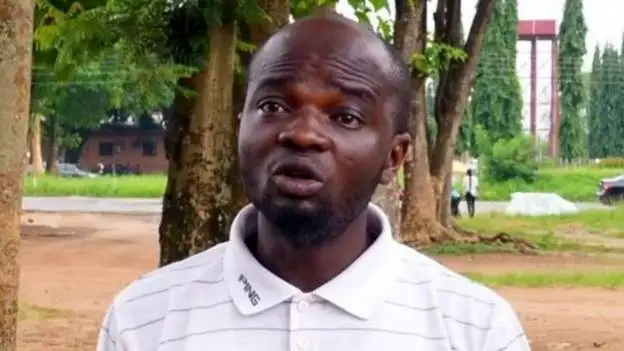I recall an event a couple of years ago when a man returned his certificate to the issuing authority. Indeed, decades ago academic certificates in Nigeria, especially those issued by universities, were code-named “meal tickets”. That was quite appropriate because possession of such qualifications could guarantee jobs that in turn provided income and food on the table for the holders.
Time has passed, and with that both the intrinsic and face value of these certificates have been eroded almost to zero, which explains the tragic situation in which our youths have found themselves. They possess qualifications but cannot find jobs, and because they cannot find jobs they go hungry and have to fall back again on their aged parents who laboured, and in some cases sold off assets to train them.
- Rejection of Nigeria’s food items abroad worrisome – FG
- NIGERIA DAILY: How The NDLEA Intends To Dispose The Largest Bust Of Cocaine
The frustration of these youths found expression recently in the action of Mr Osunleke Alaba who could no longer bear the shame of bearing a certificate that could not fetch a meal for him. After taking statistics of his circumstance, he decided to return his certificate to his alma mater, Ladoke Akintola University of Technology (LAUTECH), Ogbomosho, Oyo State.
In my early days in secondary school, my mentor, Mr Allwell Atulaegwu, once asked me to write an essay on education. After grading my work, he then wrote a model essay for me and defined education as “that which remains after all that is learnt is forgotten”. It took me years to discover that it was the great scientist, Albert Einstein, who made that statement.
This is relevant to this story. The tragedy of our educational system today is that what is learnt by students, at all levels, has shrunk tragically so much that very little, or even nothing in some cases, is left when all that is learnt is forgotten.
The reasons are on both sides of the learning process. On the part of the students, many of them get into the institutions with the intention of just picking meal “tickets” without any determination to pass through a process of learning. For such a student, the rigours of studying hard, and undertaking practical assignments, are simply a mere waste of time. He is only after the end, which is a certificate, a magic wand he can wave and jobs would appear.
There are others who enter the university to study the wrong courses in the sense that their calling, interests, and abilities are in other areas. Now, in a system that is grossly faulty even right from secondary school, many young people find themselves in this situation, and in many cases, they do not discover this until they have “graduated”, only to discover that they cannot fit in anywhere. This is the unfortunate case of Mr Alaba, who studied agricultural extension and rural development, whereas his interest is somewhere else – in the entertainment world.
From his subsequent revelations, this gentleman has no business with agriculture, except to buy food produced from the sector. His interest and inclination are in the business of making people laugh, smile or simply relax. In truth, he could have earned millions of naira by now had he been guided early enough to pursue his interest.
With the high level of pains and difficulties prevalent in Nigeria today, Mr Alaba has a lucrative career cut out for him. He will make Nigerians laugh and in doing so, he will have money flow into his pocket and bank account. This has not happened to him in the six years or so he has been languishing as an unemployed graduate.
For sure, this is not a LAUTECH problem. It is everywhere. There will certainly be a crisis in the Nigerian educational system if the NUC were to advise the universities to insert in their admission forms a “Money Back” column that would require the institutions to accept to refund to unsatisfied students the fees they paid for the years spent in such places. The schools will be unable to cope with the deluge of requests from their former students that would turn up at the Bursars’ or Registrars’ offices to take their turns to dump their certificates. Things have gotten that bad, and it portends grave dangers for tomorrow’s Nigeria.
What the former ex-LAUTECH student did was simply an authentication of what has already been established that many of the products of our universities are simply ‘unemployable’. Now, we should also add that they are also unable to create jobs for themselves, two facts that question the usefulness of our educational system. This calls for reforms in the admission process and teaching methods in our universities and polytechnics if Nigeria is to transit into the emerging global knowledge economy.
Unfortunately, the defects that led to Mr Alaba’s misfortune are not about to go away soon. Earlier in the day, I was going through the website of the 9th National Assembly and was amazed by the number of bills seeking to establish new institutions, some of which are higher educational institutions. It would be easy for many to put up the argument that they are largely colleges and universities of agriculture and of course a veterinary institute in Gombe – all of which reinforce the commitment of the Buhari administration to deepening the agricultural sector.
Unfortunately, it seems the easiest way for a senator or a member of the House of Representatives to justify the jumbo pay and perks they receive is to sponsor a bill to establish an institution. That way you don’t make enemies by trying to reform an existing institution that is obviously inefficient or even an absolute waste of resources.
More so, establishing a new institution, similar to existing ones, is quick because all that is required is possibly to copy and paste an existing Act, and in the end, you have a feather in your cap as the sponsor of the bill – the main bragging right and currency for legislators all over the world.
As the frustrated students push for their schools to be reopened, may the system strive to put them in the courses meant for them and teach them well.

 Join Daily Trust WhatsApp Community For Quick Access To News and Happenings Around You.
Join Daily Trust WhatsApp Community For Quick Access To News and Happenings Around You.


